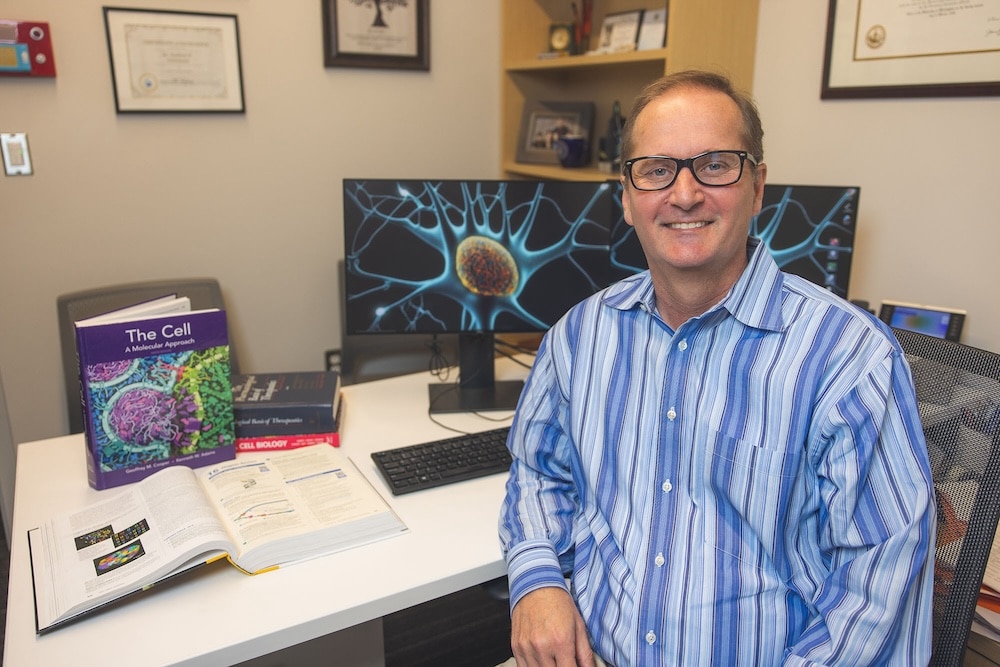Dr. Rodney Guttmann, a biology professor in UWF’s Hal Marcus College of Science and Engineering, has been awarded his second major National Institute of Health R15 grant, marking a significant milestone in his ongoing research on early detection of Alzheimer’s disease. The three-year, $420,000 renewal grant awarded earlier this fall brings the total funding to $860,000 over six years, allowing Guttmann and students to continue cutting-edge research into blood-based biomarkers for the early diagnosis of Alzheimer’s disease. His research aims to identify specific biomarkers that signal the onset of the disease, potentially enabling earlier and more accurate diagnoses that could lead to better patient outcomes.
“This ongoing project reinforces the University of West Florida’s commitment to advancing biomedical research and providing students with unique educational opportunities that prepare them for future careers in science and medicine,” Guttmann said.
This grant supports hands-on research experiences for undergraduate students, offering them the opportunity to engage in world-class scientific investigation in Guttmann’s lab. The experience has launched students into prestigious doctoral programs and made them competitive in their careers.
“In Dr. Guttmann’s lab I discovered my passion for research and grew exponentially as a scientist,” said Allie Linkous ’24, a post-baccalaureate researcher at the Buck Institute for Research on Aging. “I switched career paths and gathered the skills to move towards my future career as a research scientist. I gained exposure to a variety of techniques and projects. My time with Dr. Guttmann shaped me into the scientist I am today and prepared me for future opportunities.”
Guttmann’s ongoing work on blood-based biomarkers for Alzheimer’s disease, a major focus for NIH and global researchers, addresses the urgent need to identify individuals at risk earlier in the disease process. Early detection is critical for the development of effective interventions and treatments to prevent or slow the progression of Alzheimer’s.
For more information about the Hal Marcus College of Science and Engineering, visit uwf.edu/hmcse.
